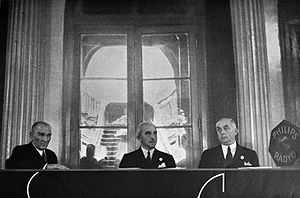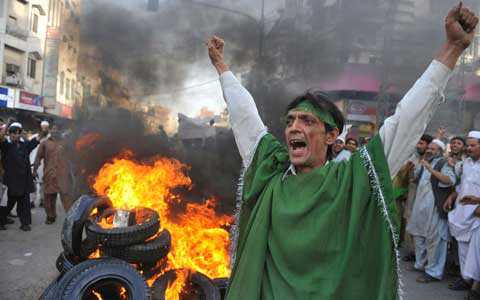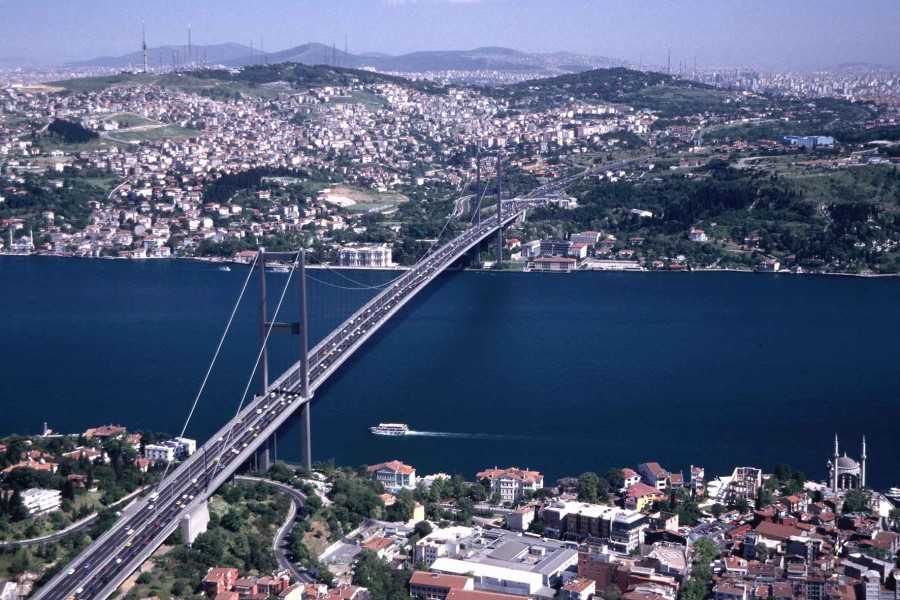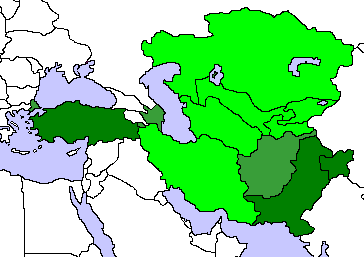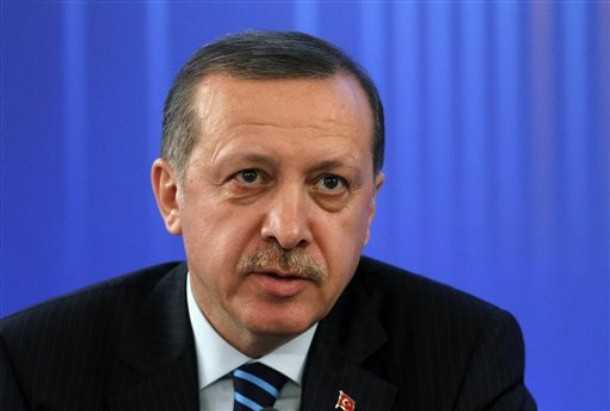The Deep State, the name given by pro-democracy Turks to the alliance of the judiciary and military, has gradually lost strength and authority at the hands of the wisdom and vision displayed by the political leadership, a quality rarely found amongst the leaders of our country
 Think of a country
Think of a country
marked with a history of frequent military interventions, political instability, human rights violations, and fierce standoffs between its right and left wings; a place where thousands have lost their lives to the quarrels triggered by the religious, ideological, and ethnic differences. Reading these lines, you might be thinking of Pakistan. However, it would be surprising for many people to know that these words describe the history of the Republic of Turkey as adequately as they highlight Pakistan’s past. It is amazing how similar is the (recent) history shared by the two countries, but more astonishing is the fact that Turkey has been able to break itself free from its gloomy past and turned into what can be safely referred to as today’s economic giant.
A recent visit to the country that took place as a result of Rumi Forum’s invitation revealed the aspects of Turkey’s economic and social development that are more than enough to baffle any visitor from a country like Pakistan. Rumi Forum is a Turkish organisation working in Pakistan under the Gulen Movement, a movement known by the name of one of the most influential religious scholars of Turkey — Fethullah Gulen. An initiative that primarily started in the 1960s with establishing dormitories for Turkish students with conservative backgrounds has today turned into a colossal movement providing services in the fields of education and health, and promoting dialogue and inter-faith harmony through media and dialogue forums. These numerous organisation in various fields are knitted together primarily by one simple vision — eradication of poverty and ignorance, and peaceful coexistence between the different sects of society, i.e. promoting tolerance. The impact of the organisation’s efforts on Turkish society is enormous and beyond comprehension.
Coming back to Turkey, visiting the place puts one in an ambivalent state. On the one hand is the joy of witnessing one of the most successful Muslim countries, particularly in light of its economy. On the other is the depression caused by the realisation of the precious years wasted by our countrymen. Turkey’s development highlights the fact that achieving economic supremacy is no mission impossible (given that the intent is present). It is almost unbelievable that a country that was experiencing one of the worst economic crises of its history in 2002 has managed to achieve such a dramatic turnaround. Government’s nominal debt stock that stood at an alarming level of 74.4 percent of GDP has shown a persistent decrease, falling to around 45 percent by the end of 2009. Today’s Turkey is characterised by a GDP of more than $ 600 billion, which is amongst the top 20 in the world, and a growth rate of over 7 percent per annum, which also makes it one of the fastest recovering economies from the global financial crisis of 2007.
More impressive than the economic highlights of the country are the trust and belief exhibited by the common public in Turkey’s leadership. The Justice and Development Party (AKP), after ruling the land for five years from 2002 through 2007, managed to defend its majority in parliament during the 2007 elections; a clear indication of the success of its leadership that is still quite popular across the various segments of Turkish society.
The new face of Turkey, as many locals refer to it, is characterised by the supremacy of democracy. The recent referendum is believed to have blocked the path of military interventions for good. The 26-point referendum has led to amendments in the constitution that was promulgated by the military coup of 1980. A major amendment aims to abolish the article of the constitution that provides protection to coup leaders. Thus military leaders involved in such plans can now be tried in civilian courts.
The violent quarrels of the past have been replaced by a peaceful dialogue, in most aspects, in a society that still faces a vast ideological distance between the two schools of thought. The liberation of the social and economic structure has been achieved despite the forceful opposition of the judiciary and the military junta, making the accomplishment even more praiseworthy. The Deep State, the name given by pro-democracy Turks to the alliance of the judiciary and military, has gradually lost strength and authority at the hands of the wisdom and vision displayed by the political leadership, a quality rarely found amongst the leaders of our country.
Turkey, even today, faces some serious social challenges that mostly revolve around the issues pertaining to human rights violations, difference of opinion among various sects of society regarding sanctioning of headscarves in educational institutions, etc. It is no anomaly as it is impossible to name a country without any internal conflicts. However, the fact worth mentioning is the determination of the leadership and people for a peaceful solution to these problems. More importantly, these ideological differences have not been able to halt the process of economic liberation. Under the cover of the European Union regulations, Turkey, over the past decade, has vigorously followed a persistent economic line that is primarily characterised by export-oriented industrialisation and increased role of the private sector with a certain degree of regulation. The success of these policies is evident from the fact that its exports, which were a mere $ 36 billion in 2002, rose to a level of $ 102 billion in 2009; the export target for 2013 is set at $ 200 billion.
The development model pursued by Turkey has several important implications for a country like Pakistan. It is a pragmatic demonstration of the fact that economic development can take place despite the presence of domestic conflicts. Leaders are defined by their quality to deliver and overcome the obstacles faced in the path of development. Whining over the problems encountered is not a characteristic of effective leaders. It would be unfortunate if our political elite fail to learn a few lessons from Turkey’s political and economic progress — a country that possesses a very similar recent political history pattern but, so far, a very different future outlook.
The writer is a graduate of Institute of Business Administration, Karachi. He can be reached at [email protected]

